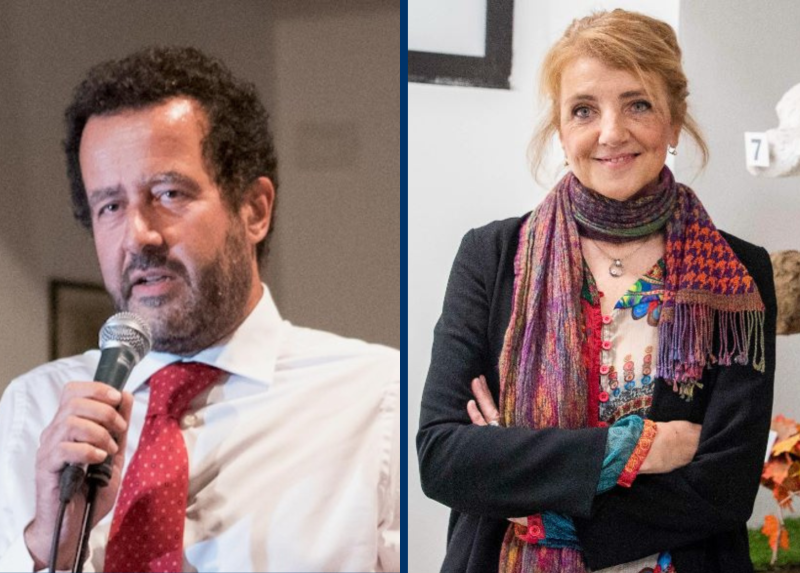0250315679
0250315678

Didascalia: Tommaso Bellini and Cristina Cattaneo, both winners of an ERC Advanced Grant.
Professors Cristina Cattaneo and Tommaso Bellini of the University of Milan have won two Advanced Grants, the prestigious funding mechanism of the European Research Council (ERC), for their projects FIND ME and Q-EVO. Cristina Cattaneo is Professor of Forensic Medicine and Anthropology at the Department of Biomedical Sciences for Healthand Head of the Anthropological and Odontological Lab (LABANOF), while Tommaso Bellini is Professor of Applied Physics at the Department of Medical Biotechnology and Translational Medicine. Their ERC-winning projects will be funded with almost 2.5 million euros each.
Funded under the Social Sciences and Humanities domain, FIND ME aims to respond to a tragic humanitarian emergency: each year, thousands of migrants who die in the Mediterranean trying to reach Europe remain unidentified, while their families are denied their rights to mourning, justice and legal certainty. Cristina Cattaneo explained: “Today’s forensic identification systems are mostly based on DNA, fingerprints and dental records, but these systems fail when the victims have no personal effects, no known relatives and no medical records. FIND ME will change the rules of the game by developing the first identification method based on the anthropological analysis of morphological traits captured in videos and photos. Our goal is to turn facial anthropology into a “new DNA”, offering a viable solution for the identification of marginalised people and victims of humanitarian crises, contributing to ensuring equal treatment for all dead, no matter their origins”.
Q-EVO, which was selected under the Physical Sciences and Engineering domain, aims to provide a quantitative description of the factors governing ecosystem evolution. “Despite the huge amount of data and observations that have piled up over the years, analysing evolution with rigorous tools is still a challenging task, due to the multi-layered and interconnected complexities involved. To overcome these hurdles, the project will use cutting edge-technologies to reproduce the key mechanisms of evolution — selection, mutation, reproduction and species interaction — in the lab, in a simplified environment where small DNA-segments will be competing against each other for survival, sometimes mutating into new successful species, sometimes turning into a symbiont or parasite. By studying these rich eco-evolutionary dynamics in these systems — which are much less complex, and therefore more understandable than real-life ones — we will finally be able to write the laws that govern this crucial aspect of nature”, explained Tommaso Bellini.
"We are truly happy and proud of this achievement, which brings the number of ERC Grants won by researchers of the University of Milan up to 66. These two Advanced Grants prove once again that we are truly a research-oriented public University. And I am particularly pleased to emphasise that both projects announced today as winners of ERC funding are a perfect example of the broad range of interdisciplinary research carried out at our University, as well as of its openness to cross-disciplinary interactions”, said Rector Marina Brambilla.
Every year, the ERC awards around 250 Advanced Grants, each one amounting to a maximum of 2.5 million euros, to projects in the most various domains. All projects must be led by a principal investigator with at least 10 years of top-level international research experience, and excellence is the only evaluation criteria.
0250315679 0250315678
Potrebbero interessarti anche